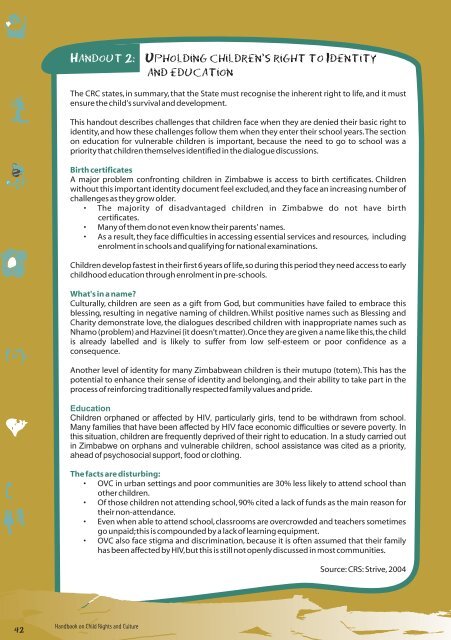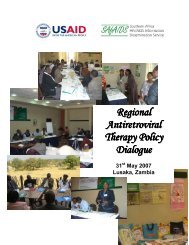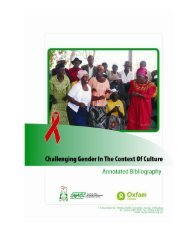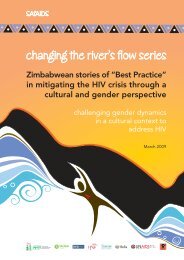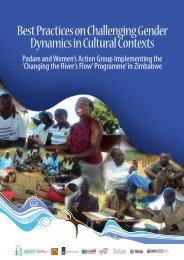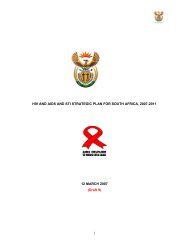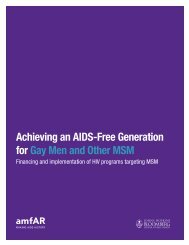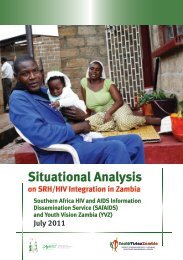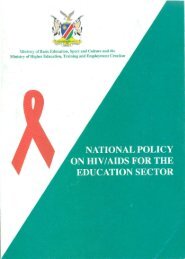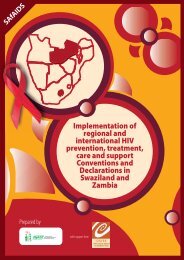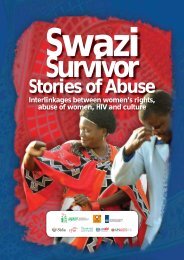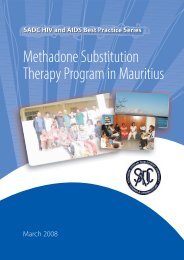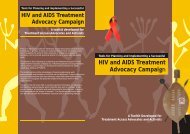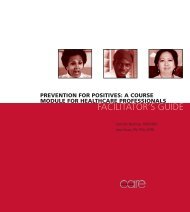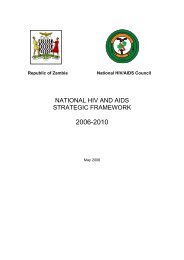CHILDREN TO THE FORE! - SAfAIDS
CHILDREN TO THE FORE! - SAfAIDS
CHILDREN TO THE FORE! - SAfAIDS
You also want an ePaper? Increase the reach of your titles
YUMPU automatically turns print PDFs into web optimized ePapers that Google loves.
Handout 2: Upholding children's right to Identityand educationThe CRC states, in summary, that the State must recognise the inherent right to life, and it mustensure the child's survival and development.This handout describes challenges that children face when they are denied their basic right toidentity, and how these challenges follow them when they enter their school years.The sectionon education for vulnerable children is important, because the need to go to school was apriority that children themselves identified in the dialogue discussions.Birth certificatesA major problem confronting children in Zimbabwe is access to birth certificates. Childrenwithout this important identity document feel excluded,and they face an increasing number ofchallenges as they grow older.•••The majority of disadvantaged children in Zimbabwe do not have birthcertificates.Many of them do not even know their parents' names.As a result, they face difficulties in accessing essential services and resources, includingenrolment in schools and qualifying for national examinations.Children develop fastest in their first 6 years of life,so during this period they need access to earlychildhood education through enrolment in pre-schools.What's in a name?Culturally, children are seen as a gift from God, but communities have failed to embrace thisblessing, resulting in negative naming of children. Whilst positive names such as Blessing andCharity demonstrate love, the dialogues described children with inappropriate names such asNhamo (problem) and Hazvinei (it doesn't matter).Once they are given a name like this,the childis already labelled and is likely to suffer from low self-esteem or poor confidence as aconsequence.Another level of identity for many Zimbabwean children is their mutupo (totem). This has thepotential to enhance their sense of identity and belonging, and their ability to take part in theprocess of reinforcing traditionally respected family values and pride.EducationChildren orphaned or affected by HIV, particularly girls, tend to be withdrawn from school.Many families that have been affected by HIV face economic difficulties or severe poverty. Inthis situation, children are frequently deprived of their right to education. In a study carried outin Zimbabwe on orphans and vulnerable children, school assistance was cited as a priority,ahead of psychosocial support, food or clothing.The facts are disturbing:• OVC in urban settings and poor communities are 30% less likely to attend school thanother children.• Of those children not attending school, 90% cited a lack of funds as the main reason fortheir non-attendance.• Even when able to attend school,classrooms are overcrowded and teachers sometimesgo unpaid;this is compounded by a lack of learning equipment.• OVC also face stigma and discrimination, because it is often assumed that their familyhas been affected by HIV,but this is still not openly discussed in most communities.Source: CRS: Strive, 200442Handbook on Child Rights and Culture


